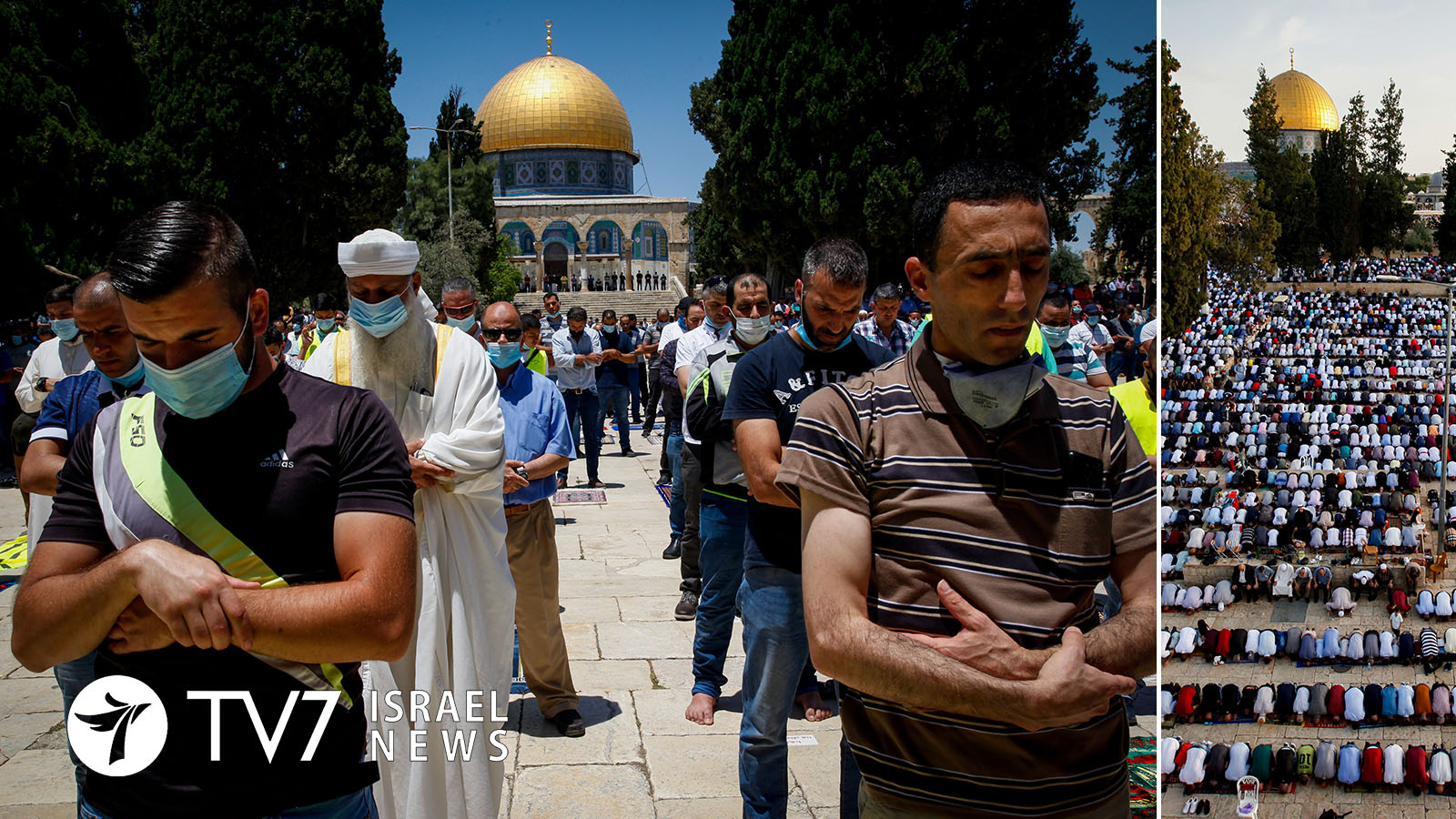Celebration of the Islamic holy month of Ramadan has began with cheer at Jerusalem’s Old City.
Colorful lanterns and ornate decorations adorned the ancient cobblestone streets last night as Muslim celebrants made their way past cheerful vendors and shopkeepers to pray at the al Aqsa Mosque, Islam’s 3rd holiest site. The mosque is located on the site where both Biblical Temples revered by Jews and Christians once stood.
Observance was dampened last year amid government-imposed lockdown restrictions aimed at curbing the coronavirus pandemic.
This year the mood was far more joyful following Israel’s world-leading COVID-19 vaccine campaign that offered all citizens – Jewish, Arab, Muslim and Christian alike – free inoculations that have nearly eradicated the disease.
The Islamic Waqf custodians of the al Aqsa Mosque compound still instruct worshippers to wear masks and maintain social distancing during prayers.
In addition to local participants, Israel has also issued holiday permits for residents of the Palestinian Authority (PA) to participate in Ramadan festivities in Jerusalem tomorrow.
According to a statement TV7 obtained from the Spokesman’s Office of the Israel’s Coordination of Government Activities in the Territories (COGAT), “Following consultations with security officials, and subject to the recommendation of the Ministry of Health in light of the high morbidity rates in the Palestinian Authority, it was decided by the political echelon that on the first Friday of Ramadan (16 April), the entry of 10,000 vaccinated Palestinians would be permitted for prayers in the Temple Mount.”
“The measures are being taken in purpose to allow freedom of worship and religion on one hand, and on the other hand, prevent to the extent possible, the spread of COVID-19 in the region,” continued the COGAT statement, which said that “an additional situation assessment will be carried out to examine the approved outline, taking into account both security and health needs” after the Friday prayer service.
Although Jerusalem is still without foreign tourists, far more people are roaming the area, where shops reported brisk business.
“Because of coronavirus, the situation has been bad for the merchants and the people. Now with coronavirus vaccination, the situation got better,” shopper Mohammad Abu Sbeih told Reuters in Jerusalem.
The PA, where the disease is still rampant, is conducting it’s vaccination drive at a far slower than in Israel. COGAT has helped facilitate thousands of vaccines by IDF troops to the Palestinians, including Israeli donations.
Palestinian authorities in the West Bank s announced that more shops and services at mosques for evening Ramadan prayers at local mosques will be permitted except for the busiest day of the week on Friday, when prayers must be held outdoors. A COVID night-time curfew has also been imposed against movement between cities and villages. Restaurants and pastry shops have also been banned from holding Ifthar feasts to mark the breaking of daily fasts at sunset, and are only allowed to make deliveries.
After shoppers packed markets in the Hamas-controlled Gaza Strip in disregard of the recent threefold-increase in daily infections, health authorities were forced to also impose night curfews, close schools and ban large gatherings; although the measures fell short of a total lockdown.
